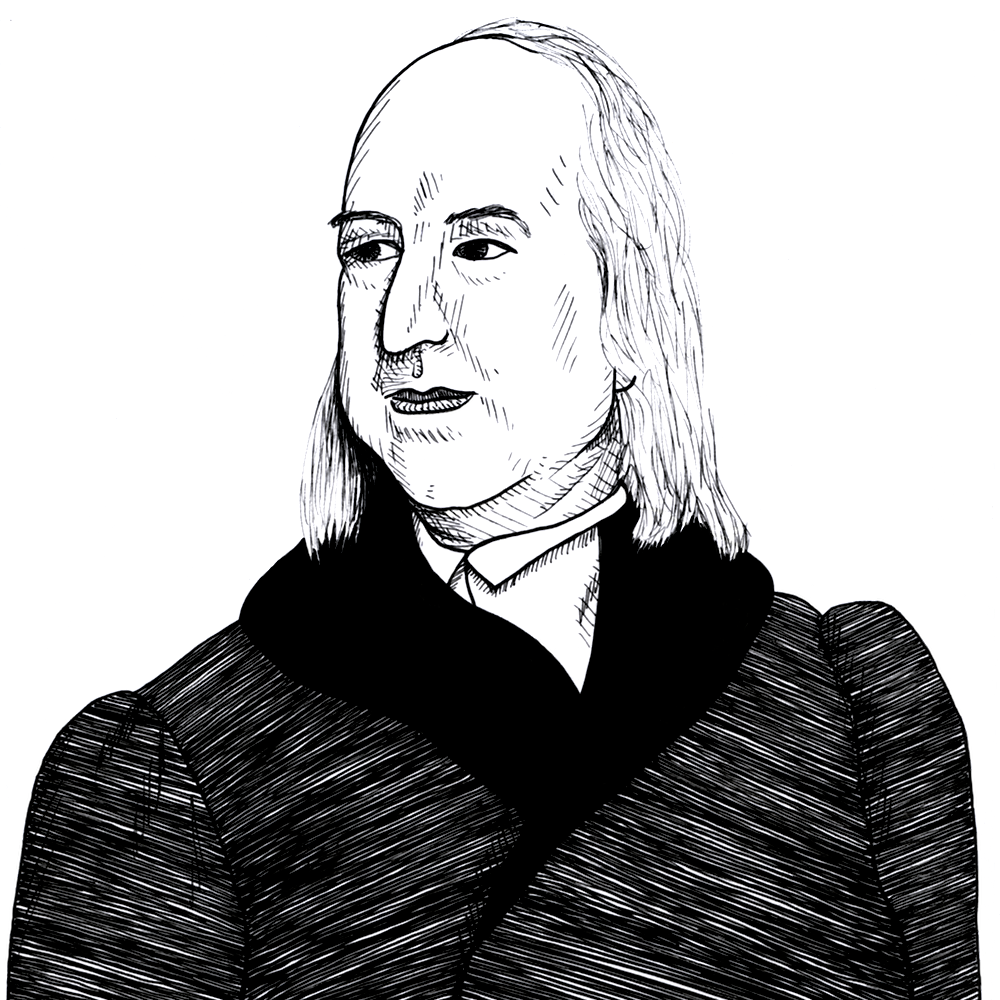
Jeremy Bentham on how the interests of the many (the people) are always sacrificed to the interests of the few (the sinister interests) (1823)
Found in: The Works of Jeremy Bentham, vol. 1
The English lawyer and utilitarian political philosopher Jeremy Bentham (1748-1832) scathingly denounces the English political system which had emerged during the 18th century. A trinity of statesmen, lawyers, and priests had gathered around the monarch forming a “sinister interest” of privilege which exploited the ordinary people:
Class
Sinister interests, two in the same breast—lawyer’s interest and ruling statesman’s interest: lawyer’s interest, hostile to that of all suitors, and of all those who may have need to be so, that is to say—of all who are not lawyers. Ruling statesman’s interest, hostile to all subjects’ interest, in a form of government, which, to the inclination common to all breasts, adds in the ruling hands adequate power: power, to an amount sufficient for winding up to the pitch of perfection the system of depredation and oppression: power, by means of the corruption and delusion, which are the essence of this form of government, in addition to that physical force and those means of intimidation and remuneration, which belong of necessity to every form of government.